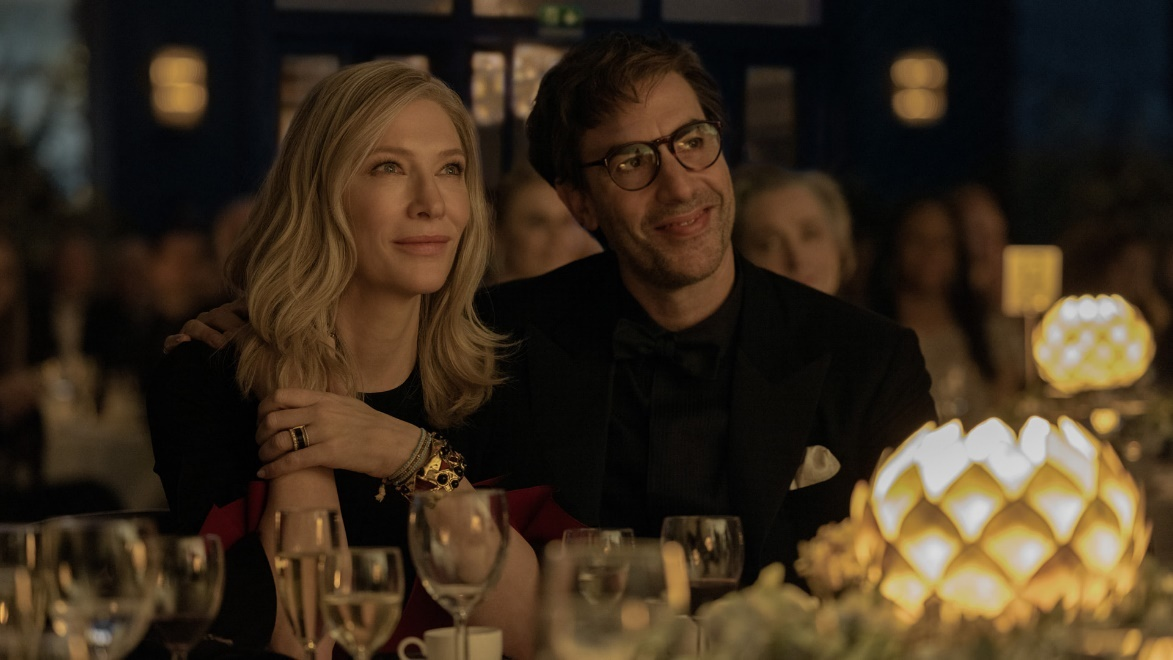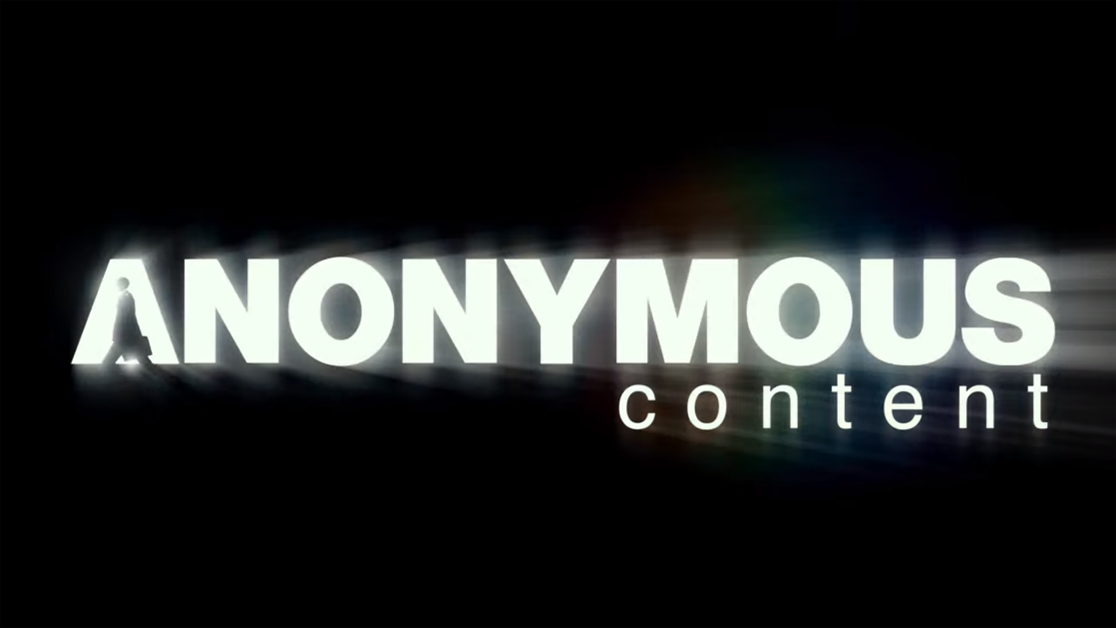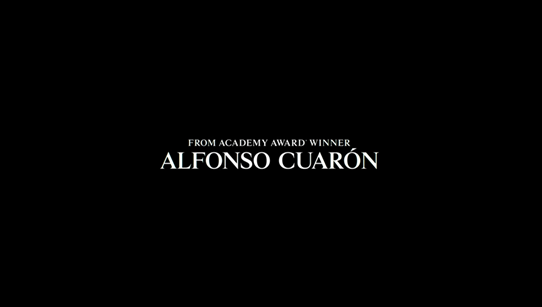Disclaimer, Anonymous Content and single series auteur-directed television
Andrew Stubbs-Lacy / Staffordshire University

Disclaimer, AppleTV+’s new series that was adapted for the screen and directed entirely by Alfonso Cuarón, was released following substantial fanfare befitting a premium scripted drama that most people can only watch (at least legally) on the subscription streaming service. The 7-episode 5-hour and 43-minute show about a documentary filmmaker with a hidden past was screened in its entirety at the Toronto International and Venice film festivals, which also rolled out their red carpets for Cuarón and its star, Cate Blanchett, who gave customary interviews to media outlets and participated in Q&As.
During interviews, Cuarón called Disclaimer a very long movie as he recalled pre-production meetings with AppleTV executives where he told them that he did not know how to make television and was too old and not keen to learn.[1] Asked how Disclaimer came to be his follow-up project to his critically acclaimed movie Roma, Cuarón stated, ‘I don’t know. I don’t really know how things happen, they just happen and it’s when something makes sense and something clicks’.[2] Meanwhile, Blanchett repeatedly described how she wanted to go on a creative journey with Cuarón and said that she’s ‘very director-driven’.[3]
Cuarón’s comments raise questions about why AppleTV executives would hire him for a role that he effectively admits to being incapable of adequately filling. Yet his comments deliberately obscure industrial processes surrounding his employment to preserve his reputation for being a kind of creative genius and promote Disclaimer as ‘cinematic’ to distinguish it from most other television. This is symptomatic of a ‘cinematic’ discourse that, as Michael Newman and Elana Levine have explored, has proliferated and intensified around certain high-end series during the 21st century.[4]
Various scholars have linked this intensification to cultural and technological transformations that include the emergence of pay-television channels, DVDs, and home cinema systems, and a greater interest in certain television shows’ creators by critics and audiences.[5] Festivals and some critics that cultivate reputations for being able to spot bold and quality creative work facilitate it, as when Toronto and Venice took the unusual step of screening Disclaimer episodes consecutively, as though it were a movie. Yet my work has explored how the discourse is incubated and mobilized by talent intermediaries such as agents and managers, figures who play a significant role in shaping cultural production while usually remaining out of sight from the public.[6] Hence, Disclaimer was produced by Anonymous Content, a leading Hollywood talent management company that makes a virtue of hiding in plain sight.

Despite also managing actors, writers, and cinematographers, Anonymous has built its brand around making quality work with auteur-directors, including Cuarón, who has been a client for many years. The company mostly made commercials and some feature films before it expanded into television early in the 2010s when its producer-managers packaged True Detective and The Knick both with a single director, clients Cary Fukunaga and Steven Soderbergh respectively, in what marked a break from most American scripted drama production, which tends to be shot by several revolving directors who are hired to fulfil the creative vision of the showrunner. Promoted as cinematic works enhanced by their auteurs, these shows brought HBO and its sister channel, Cinemax, quite a bit of buzz, which led to more shows with single-season directors being made by Anonymous and other producers, including Maniac and The OA, and Big Little Lies, She’s Gotta Have It, and Too Old to Die Young respectively.
| Year of release | Anonymous Content Drama Productions (single director season) | Director | Channel |
| 2014 | True Detective (season 1) | Cary Fukunaga | HBO |
| 2014-15 | The Knick (1 & 2) | Steven Soderbergh | Cinemax |
| 2016-19 | Mr. Robot (2-4) | Sam Esmail | USA Networks |
| 2016 | Quarry (1) | Greg Yaitanes | Cinemax |
| 2016 | The OA (1) | Zal Batmanglij | Netflix |
| 2018 | Maniac (1) | Cary Fukunaga | Netflix |
| 2018 | Homecoming (1) | Sam Esmail | Amazon Prime Video |
| 2020 | Homecoming (2) | Kyle Patrick Alvarez | Amazon Prime Video |
| 2023 | True Detective: Night Country (4) | Issa López | HBO |
| 2024 | Disclaimer (1) | Alfonso Cuarón | AppleTV+ |
As my recent book shows, it is important to recognize the roles that talent intermediaries play in part because it challenges romanticized notions about screen production, which includes ideas that quality cinematic works are the manifestations of a singular genius’s unique vision. Contrary to Cuarón and Blanchett’s efforts to portray the project as a creative journey borne of happenstance, Disclaimer is more accurately explained as a product of Anonymous’s packaging strategy, which connects source material with a renowned director to mobilize their auteur brands and attract other name talent and interest distributor buyers. This aligns with Violaine Roussel’s finding that agents involved in packaging film and television aim to build momentum around a project by creating impressions that it will eventually be green-lit and be of a high quality to attract high profile players (star actors and above-the-line crew) whose participation further bolsters those impressions and serves to attract more high profile players.[7]
There are, of course, different ways that we can engage with an auteur director’s work in television. One way is in relation to cultural and social hierarchies because underneath the shiny glaze of glamour and quality are certain problems that the talent management branding and packaging strategies reinforce. For instance, they reinforce old ideas about the auteur as a male maverick, as shown when Cuarón locates Disclaimer within a tradition that has seen filmmakers including Reiner Werner Fassbinder, Ingmar Bergman and David Lynch ‘experiment[ing] with the long format’.[8] Like other directors that have helmed Anonymous’ single-director series, such as Fukunaga and Zal Batmangli, Cuarón repeatedly emphasizes how exhausting shooting ‘seven films’ back-to-back was,[9] which makes masculine strength seem to be a prerequisite for creating innovative art.
The packaging strategy also sustains hierarchies between so-called auteur directors and directors-for-hire and writers, whose work, it is supposed, is of lower quality and value. Hence, Blanchett explained that she’s very director-driven ‘because you can read the greatest script in the world, but it depends who’s going to be directing it, who’s looking down the lens’.[10] Putting aside the fact that Blanchett has worked on series that have many directors, such as FX’s Mrs. America, these ideas risk reigniting long-running tensions between above-the-line constituencies over the attribution of authorship, and preserve industrial inequalities that see male rather than female directors being branded as mavericks and continuing to be offered the most lucrative opportunities in film and TV.

The packaging strategy is used because the industry players perceive it as enhancing the value of the product for audiences. AppleTV+’s trailer has text inserts describing Disclaimer as being ‘From Academy Award Winner Alfonso Cuarón’ not long before another labels it ‘A 7-Part Event’, which promotes it as cinematic and unmissable for a fee-paying audience while distinguishing it from most other television. Doing so reinforces cultural hierarchies that, as Newman and Levine thoroughly explored, make certain scripted dramas appear suitable for refined middle-class tastes, and contribute to the denigration of traditional television’s already maligned genres, such as reality shows and soaps, and their predominantly female, older, and working-class audiences.
Whether or not single director shows warrant the hype is debatable. The Knick and The OA were both cancelled after they failed to attract more audiences to Cinemax and Netflix, respectively, while Disclaimer’s early buzz subsided when it began getting mixed responses from critics. Several critics complained about the quality of the dialogue, which seemed to confirm Cuarón’s own claim that he is stronger as a director than as a writer. The fact that more auteur-directors have shot miniseries than shows with multiple seasons may be part of an attempt to promote them as self-contained films and limit the risk that they will be seen as failures if their show is cancelled. So, regardless of whether Disclaimer comes to be seen as a success, Cuarón’s likely to remain highly employable as his reputation for being a bold auteur willing to take risks should remain intact.
Image Credits:
- Fig. 1. Disclaimer (Cuarón) as seen on AppleTV+ (author’s screen grab)
- Fig. 2. Anonymous Content logo, seen in the credits for several of its productions (author’s screen grab)
- Fig. 3. Table of Anonymous Content productions with their single director seasons
- Fig. 4. Disclaimer trailer crediting Cuarón and his feature film pedigree (author’s screen grab)
- Etan Vlessing, ‘Alfonso Cuarón Was “Terrified” Making New TV Series “Disclaimer”’, The Hollywood Reporter, 08 September 2024, https://www.hollywoodreporter.com/movies/movie-news/alfonso-cuaron-fellow-amigos-disclaimer-1235995166/ [↩]
- TIFF Originals, ‘Alfonso Cuarón | Visionaries | TIFF Industry Conference 2024’, 09 October 2024, Alfonso Cuarón | Visionaries | TIFF Industry Conference 2024. [↩]
- Marcus Jones, ‘“Disclaimer” Is Unlike Anything Alfonso Cuarón or Cate Blanchett Have Done Before: ‘This Felt Slightly Dangerous’’, indieWire, 02 September, 2024, https://www.indiewire.com/features/interviews/alfonso-cuaron-cate-blanchett-disclaimer-interview-venice-1235042894/ [↩]
- Michael Z. Newman and Elana Levine, Legitimating Television, Abingdon: Routledge, 2012. [↩]
- For example, Newman and Levine; Christopher Anderson, ‘Producing an Aritstocracy of Culture in American Television’, pp. 23-41, in G Edgerton and J.P. Jones (eds.) The Essential HBO Reader, Lexington: University of Kentucky Press, 2008. [↩]
- Andrew Stubbs-Lacy, The Talent Management of Indie Authorship: From American independent cinema and short “films” to pay-TV and streaming, Edinburgh: Edinburgh University Press, 2024. [↩]
- Violaine Roussel, Representing Talent: Hollywood Agents and the Making of Movies, Chicago: Chicago University Press, 2017, p. 5. [↩]
- TIFF Originals, ‘Alfonso Cuarón’. [↩]
- Patrick Brzeski and Scott Roxborough, ‘Alfonso Cuarón, Cate Blanchett Unveil Big-Budget Apple TV+ Series “Disclaimer” in Venice’, The Hollywood Reporter, 29 August 2024, https://www.hollywoodreporter.com/tv/tv-news/alfonso-cuaron-apple-tv-series-disclaimer-venice-1235986617/ [↩]
- Jones, ‘“Disclaimer” Is Unlike Anything…’. [↩]